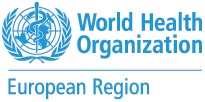
Back to the future: Harnessing the power of primary health care to transform our health systems
In marking the 45th anniversary of the historic Alma-Ata Declaration, WHO/Europe calls on Member States to reframe and invest in PHC as the backbone of #HealthForAll
Astana, Kazakhstan, 24 October 2023
As the permacrisis of this day and age takes an ever-greater toll on health systems globally, urgently rethinking and prioritizing primary health care as an essential pillar of universal health coverage is not an option, but a must. This requires governments and health authorities to refocus and restrategize on what primary health care should be; innovate to harness current and future technological advances; and, ultimately, return to and strengthen the human connection between health providers and those they serve. This will bring about better health outcomes, foster individual and community well-being, strengthen earlier access to health services, and help restore public confidence in the health sector.
This was the call to action issued by the WHO Regional Office for Europe, the Ministry of Health of Kazakhstan and the UNICEF Europe and Central Asia Regional Office, organizers of this week’s International Conference on Primary Health Care in Astana, commemorating both the 45th anniversary of the Alma-Ata Declaration and the 5th anniversary of the Astana Declaration.
Back to the future
The COVID-19 pandemic accelerated the impetus to innovate and transform health services delivery, demonstrating that change is both necessary and possible.
“We’re essentially advising countries to go ‘back to the future’ – to reclaim the promise of achieving health for all through PHC, embedded in Alma-Ata 1978 and Astana 2018, and convert that promise into a reality that uses innovation, such as new technology that simply wasn’t available 45 years or even 5 years ago,” said Dr Hans Henri P Kluge, WHO Regional Director for Europe.
“And as we work hard to leverage this digital transformation and make sure everyone benefits from it equally, let us not forget the human element. Compassionate care—for both physical and mental health— is what will allow us to truly leverage the benefits of digital tools and other technology, because compassion and solidarity are at the heart of what primary health care really is. In other words, we must strive to be digital-but-human.”
Kazakhstan’s inspiring example
At this week’s conference in Astana, representatives from many of the 70 WHO Member States attending from across the world shared their PHC experiences – challenges and successes alike. Among them, the host Kazakhstan whose Minister of Health, Dr Azhar Giniyat, spelled out her country’s triumph in primary health care, using the integration of mental health services as an example.
“We’ve moved away from a purely biomedical approach and incorporated mental health services and social support in our multi-disciplinary primary health care teams, putting patients’ needs at the centre, listening to them, and adjusting the way in which services are delivered to meet the needs of the community,” explained Minister Giniyat. “Shifting mindsets created the foundation for change. We’ve significantly increased funding to primary health and changed the university curricula at all levels of medical education to include these new approaches.”
High-level political commitment, including from President Kassym-Jomart Tokayev, has improved funding mechanisms and advanced the digitalization of PHC. There is clear evidence that prioritizing PHC yields dividends. For example, the suicide rate among adolescents in Kazakhstan has reduced by more than two-and-a-half times, and premature mortality from non-communicable diseases continues to decline.
The way forward
“Primary health care begins and ends with people, and Kazakhstan is showing the way forward,” said Dr Natasha Azzopardi-Muscat, Director, Country Health Policies and Systems, WHO/Europe. “First and foremost, by demonstrating how political will can help prioritize PHC services, including in the most hard-to-reach communities. Second, by meeting the needs of the primary care workforce, to ensure they are supported and enabled to provide essential services with a truly human touch. Then, by embracing innovation, including through the use of digital tools, so that primary health care can more easily deliver health to the people when and where they need it.”
“WHO/Europe is calling for a comprehensive change in the way we think about, and carry out, primary health care, starting with the need for PHC to be complemented and supported by fit-for-purpose hospitals that meet people’s changing health needs.”
concluded Dr Kluge. “And as we look at what needs to be done next, countries should increase public health spending in PHC and improve the working conditions of the PHC workforce, so that a career in PHC becomes the career of choice for the next generation of health workers.
“When we endorsed Alma-Ata 1978, the then-WHO Director-General Halfdan Mahler said, ‘The greatest potential energy in the world is human energy, and health is the fuel that can generate it.’ Let’s reach back in time even as we look forward, connecting the past with the future of health, through the practical, actionable promise of primary health care for all.”
ENDS
Additional information:
Youth-led Outcome statement
VIDEO: Youth representatives demand a say in primary health care
Contacts:
For media in Kazakhstan: Assel Artakshinova, conference.pmsp@mail.kz
For international media: Bhanu Bhatnagar, bbhatnagar@who.int
Notes to editors:
- WHO/Europe, together with UNICEF Europe and Central Asia Regional Office and the Government of Kazakhstan, co-hosted the international conference to celebrate the 45th anniversary of Alma-Ata and 5th anniversary of Astana Declarations on primary health care. The conference “Primary health care policy and practice: implementing for better results” was an official side event of the 73rd session of the WHO Regional Committee for Europe held in Astana, Kazakhstan on 24–26 October 2023.
- The International Conference on Primary Health Care was put together in close collaboration with the Universal Health Coverage Partnership—WHO’s largest platform for international cooperation on UHC which is a core component of the WHO Special Programme on Primary Health Care. On 22 October, the UHC Partnership hosted a pre-Conference workshop for more than 200 delegates from Ministries of Health, development partners and WHO country offices from all over the world. The meeting served as a forum to examine the connections between primary health care and UHC, the political dynamics surrounding health system reforms, and success factors that enabled innovation and investment for primary health care for better implementation in the immediate future.
- The Conference brought together strategic health leadership at national and subnational levels shaping primary health care and service delivery transformation. In addition, senior officials in ministries of health with technical responsibility for the organization of primary health care services were invited to participate, as will academic and technical experts from academic institutions, and international and non-governmental organizations involved in shaping primary health care services.
- Youth were engaged early in the design of this conference. An informal youth working group was established made up of representatives from the WHO Regional Office for Europe’s Youth4Health network, the WHO Youth Council, the WHO Primary Health Care Young Leaders Network and UNICEF youth networks. The working group played a key role in leading the drafting and preparation of the conference outcome statement. This included at times collaborating with technical focal points from the WHO and UNICEF to review the draft and ensure it was technically accurate.
- Country PHC success stories: In Kazakhstan, PHC teams now include mental health specialists and social workers accessible for all reducing the need for expensive travel and specialist visits. In Kyrgyzstan, a new pay-for-performance system is attracting more doctors into PHC. Ireland was one of the first countries in the WHO/Europe region to strengthen occupational health and wellbeing structures for health workers to avoid burnout. In Tajikistan, a comprehensive health labour market analysis has helped identify PHC challenges, with concrete steps taken to improve the recruitment and retention of doctors in rural areas.
This information was brought to you by Cision http://news.cision.com
If you would rather not receive future communications from WHO Regional Office for Europe, please go to https://optout.ne.cision.com/en/vC3d1vc3vFcUFhgDsUWEDew7vAuMgL1mNMUJpFf1A4gvNpkGRGBUFsXc9H6yJW2RoAM5xWmRcwZf2w85cKETf1Ssf4NkztVuwhjtGJYPiTqHhkScQzHGB2r7bDQtZcbF6jE.
WHO Regional Office for Europe, Marmorvej 51, Copenhagen, 2100 Denmark

